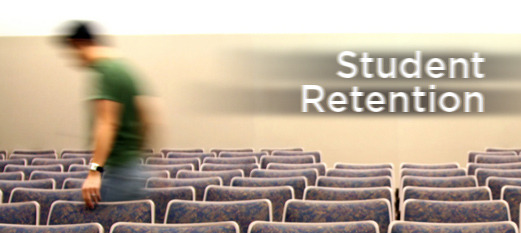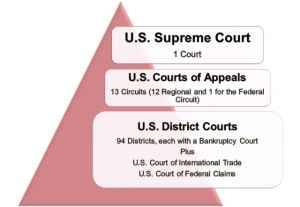Don't wanna be here? Send us removal request.
Text
Criminology: Cultural Transmission Theory
Within criminology studies, Clifford Shaw and Henry McKay are the criminologists most closely associated with cultural transmission theory. Cultural transmission theory suggests that criminal behavior is learned through social interactions within a community, particularly from close social groups like peers and family, where norms and values that support criminal activity are passed down from…

View On WordPress
2 notes
·
View notes
Text
Criminology: Arousal Theory
Within the study of criminology, the “arousal theory” is most commonly associated with Hans J. Eysenck, who proposed a biosocial theory based on the concept of arousal levels and individual differences in how people react to stimuli, linking it to criminal behavior. The foundational ideas of arousal theory in psychology are often attributed to researchers like Donald B. Lindsley and Robert Yerkes…

View On WordPress
2 notes
·
View notes
Text
Criminology: Routine Activity Theory (RAT)
Routine activity theory (RAT) was developed by Lawrence E. Cohen and Marcus Felson in 1979 as a way to explain the increasing crime rates in the United States after WWII. This criminological theory differs from most theories because it focusses on the criminal event rather than the criminal or psychological causations that motivate criminal activity. Routine activity theory (RAT) has its…

View On WordPress
1 note
·
View note
Text
Criminology: Self-Control Theory
The criminology theory of self-control theory was developed by Travis Warner Hirschi and Michael Ryan Gottfredson in the late 1960s. The theory’s foundation is that the lack of individual self-control is the main factor behind criminal behavior and aims to explore why a person chooses to engage in criminal activity. Hirschi claimed the presence or lack of effectiveness of social controls on…

View On WordPress
0 notes
Text
Academic Writing Tips: Scholarly Tone
A scholarly tone is the voice of the academic writer, and it is intended to be directed at the academic audience. A scholarly tone is professional and speaks directly to the profession and discipline using familiar terminology that is direct, objective, and formal. A scholarly tone in your academic writing adds credibility to your argument or position and is persuasive. A scholarly tone avoids…

View On WordPress
0 notes
Text
How to Write an APA Style Abstract for your Term Paper
The purpose of the abstract is to clearly communicate a concise summary of your term paper. The abstract serves two main purposes: To help readers determine the relevance of your paper within their research interest, and to communicate the key findings within your paper, and your conclusion. Even though the Abstract is the first section of the paper after the cover/title page, it is a good idea…

View On WordPress
0 notes
Text
Student Retention
There are many reasons a student withdraws from class and even drops out of school. As a classroom instructor it is very disappointing when one of your learning partners withdraws from class. Building respectful scholarly relations is one way to help the student through a tough decision when they are struggling academically, financially, or have a personal crisis. Helping to remove roadblocks and…

View On WordPress
#College student#Criminal Justice Student Retention#Higher Ed#Student Centered Learning#Student Retention#Student Satisfaction
0 notes
Text
How AI Benefits Policing
Definitions AI (artificial intelligence): the field of computer science dedicated to solving cognitive problems commonly associated with human intelligence. An example of AI in policing is the algorithmic process that supports facial recognition technology. ADS (automated decision systems): computer systems that either inform or decide on a course of action to pursue about an individual or…

View On WordPress
#AI Policies#AI Policing#artificial intelligence#Crime Analyst#Crime Prevention#Police Technology#Predictive Policing
0 notes
Text
United States Federal Court Structure
“Life and liberty can be as much endangered from illegal methods used to convict those thought to be criminals as from the actual criminals themselves.”- Earl Warren, 14th Chief Justice of the United States The United States court system is a dual system (USC, 2023). The dual court system refers to the separate federal judicial and state judicial court systems (USC, 2023). The two court systems…

View On WordPress
#Criminal Justice Education#Supreme Court Justices#U.S. Courts#United States Court of Appeals#US District Court#US Federal Courts
1 note
·
View note
Text
Social Media and Criminal Justice Education
Using social media for learning provides opportunities for criminal justice students to create personal learning networks (PLN), professional career, and criminal justice discipline networking opportunities that might not otherwise be available in the students in their local area. Social media engagement enhances the student’s inspiration and comprehension (Erstad & Silseth, 2023). Before…

View On WordPress
#Criminal Justice Education#Digital Learning#Higher learning Social Media#How to thrive in online learning#Social Media Learning#Technology in Education
0 notes
Text
Removing Roadblocks to Academic Success
Going back to school or starting your college studies as an adult learner can be a challenge. Most adult learners have been away from the formal learning process for a while and getting back into the swing of writing expectations, study habits, and submitting work by the due dates can be stressful when first starting. This is normal and everyone who has taken the journey to earning a degree has…

View On WordPress
#academic success#collaborative group learning#College course load#College student#Roadblock to succes#Time Management
0 notes
Text
Criminal Justice Scholar: Learning Approaches
How a criminal justice first-year student approaches their studies will determine their enjoyment in the learning process as well as formulate good study habits for future academic success. The Surface Learner The surface learner is just looking to survive and pass the class. Not dreadfully worried about learning new concepts and applying these lessons to problem solve. The surface learner is…

View On WordPress
#Authentic Deep Learner#Criminal Justice Student#Higher Education#Learning Styles#The Surface Learner
0 notes
Text
Artificial Intelligence (AI) and Term Papers
In simple terms artificial intelligence (AI) is the science of making computer programs that can think like humans. Generative AI is a type of artificial intelligence technology that can produce various types of content, including text, imagery, audio, and synthetic data. When computer engineers create software that mimics human intelligence, problem solving, and content creation there should be…

View On WordPress
0 notes
Text
The Elephant in the Room-Working Fatigued

View On WordPress
0 notes
Text
Integrating Constructivist Teaching Strategies for First-Year Criminal Justice Students
Constructivist learning theory is a learning concept that students build knowledge based upon their prior knowledge and learning from the world around them (Hrynchak & Batty, 2012; Yoders, 2014). Lev Vygotsky, John Dewey, and Jean Piaget are the main theorists in the development of constructivist learning (Hrynchak & Batty, 2012; Yoders, 2014). Constructivist learning is a good match for…

View On WordPress
#Andragogy#Collaborative Learning Theory#Constructivist learning theory#Criminal Justice Education#educational research#first year college students#Learning Theory#teaching strategies
0 notes
Text
When To Use In-text Citations in Academic Writing: APA Style Writing Tips
What Is A In-Text Citation? In APA Style 7th edition, in-text citations are inserted in the text of your research paper to briefly document the source of your information. The reason for using in-text citation is to give credit to the source that inspired your thinking on a specific topic. In-text citations can go before or after a sentence. Examples: Bond (2023) stated… Citation sources is…

View On WordPress
0 notes
Text
Emotional Intelligence and Policing

View On WordPress
#Criminal Justice#Emotional Intelligence#Human Dignity#Police stress#Self management#Self-awareness#Social awareness#stress-management
0 notes